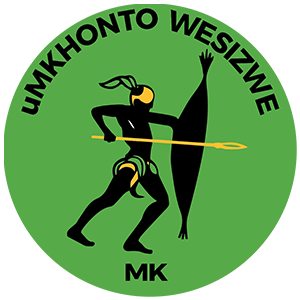Youth participation in politics is a crucial component of any vibrant democracy. In South Africa, the involvement of young people in political processes has been growing, driven by a combination of historical context, current socio-economic challenges, and a desire for change. This article assesses the level of political engagement among South African youth, explores the factors influencing their participation, and highlights initiatives aimed at increasing youth involvement in governance.
The Current State of Youth Political Engagement
In recent years, South African youth have become increasingly politically active, with many engaging in various forms of political participation, from voting and campaigning to activism and holding office. According to a study by the Institute for Justice and Reconciliation (IJR), young South Africans are more likely to engage in protest actions and social movements than formal political processes, indicating a preference for direct action over traditional political mechanisms.
Factors Influencing Youth Participation
1. Socio-Economic Challenges
- Unemployment: High levels of youth unemployment, which stood at around 63% in 2023, have driven young people to seek change through political involvement. The economic struggles faced by many young South Africans create a strong motivation to participate in political processes that promise economic reform and job creation.
- Education: Access to quality education and opportunities for higher education are critical issues. Young people are often at the forefront of movements demanding better educational infrastructure and policies, as seen in the #FeesMustFall protests.
2. Historical Context
- Apartheid Legacy: The legacy of apartheid continues to influence political attitudes and engagement among South African youth. The historical struggle for freedom and justice inspires many young people to participate in efforts to address ongoing social and economic inequalities.
- Role Models: The influence of young leaders from the apartheid era, such as Steve Biko and Solomon Mahlangu, serves as a powerful example for contemporary youth, encouraging them to take active roles in politics and advocacy.
3. Social Media and Technology
- Digital Activism: The rise of social media has provided young people with new platforms for political engagement and activism. Hashtags like #FeesMustFall and #RhodesMustFall gained international attention and mobilized thousands of young South Africans, demonstrating the power of digital tools in political organizing.
- Access to Information: The internet and social media have made information more accessible, enabling young people to stay informed about political issues and participate in online discussions and campaigns.
Interviews with Young Politicians and Activists
Interview with Lindiwe Mazibuko
- Background: Lindiwe Mazibuko is a former leader of the opposition in the South African Parliament and a prominent advocate for youth participation in politics.
- Insights: “Young people have the power to shape the future of our country. Their energy, creativity, and determination are essential for driving change. It is vital that we create more opportunities for youth to engage in politics, not just as voters, but as leaders and decision-makers.”
Interview with Fasiha Hassan
- Background: Fasiha Hassan is a student leader and one of the key figures in the #FeesMustFall movement.
- Insights: “The #FeesMustFall movement showed that young people can make a significant impact when they unite around a common cause. Our generation faces many challenges, but we also have the tools and the passion to address them. It’s about turning our activism into sustained political engagement.”
Initiatives to Increase Youth Involvement
1. Youth Parliament
- Purpose: The Youth Parliament is an initiative that provides young people with a platform to engage with legislators and discuss issues affecting them. It aims to foster a culture of political participation and leadership among youth.
- Impact: By involving young people directly in the legislative process, the Youth Parliament helps to bridge the gap between youth and formal political structures, ensuring that their voices are heard in policy-making.
2. Electoral Education Programs
- Purpose: Various non-governmental organizations (NGOs) and government bodies run electoral education programs to inform young people about the importance of voting and how to participate in elections.
- Impact: These programs increase awareness about the electoral process and encourage higher voter turnout among young people. They also provide training on how to run for office and engage in political campaigns.
3. Youth Development Agencies
- Purpose: Agencies like the National Youth Development Agency (NYDA) focus on empowering young people through skills development, entrepreneurship support, and leadership training.
- Impact: By providing resources and support, these agencies help young people to build the skills and confidence needed to engage in politics and contribute to their communities.
Youth participation in politics is vital for the health and future of South Africa’s democracy. While there are significant challenges, the growing engagement of young people in political processes and activism is a promising sign. By addressing socio-economic issues, leveraging technology, and providing platforms for involvement, South Africa can harness the potential of its youth to drive positive change and strengthen its democratic institutions.
For more detailed information and resources on youth participation in politics, you can visit organizations such as the Institute for Justice and Reconciliation and the National Youth Development Agency.




